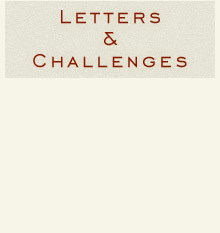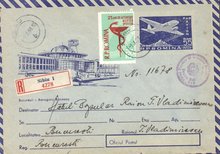Emdashes—Modern Times Between the Lines
The Basics:
About Emdashes | Email us
Ask the Librarians
Best of Emdashes: Hit Parade
A Web Comic: The Wavy Rule
Features & Columns:
Headline Shooter
On the Spot
Looked Into
Sempé Fi: Cover Art
Mailbag: The Cramble Contest
Filed under: Letters & Challenges Tagged: cartoons, contests, Galway Kinnell, poetry

A glad reader whose questions were answered--after reading the illumination of Galway Kinnell's poetic vocabulary in "Burning the Brush Pile" (June 19) by the amazing Sue Blank, about whom more shortly--writes:
Ms Gordon--I believe in serendipity but this has me wheezing--I read the Kinnell poem while enroute to Ireland and noted four words to look up upon my return home. Yes, those four. ["Clart," "crambles," "shinicle," and "hirple."]
(It occurs to me only now that I might have used Trinity or the National libraries while in Dublin--all four have a celtic-brit air about them, don't they--but I didn't. Beckett and Yeats shows erased everything.)
Only now, back here, this very morning, did I return to the list and met total frustration both on and offline ... until I at last Googled 'crambles' and found you waiting right beneath them!
You're right, the context did help with them all, crambles suggesting brambles to me (only packed tighter) ... shinicle fairly screamed pile, pyre, chimney ... clarts are practically onomatopoetic for cinder bits (also those chads of mud you knock out of the cleated soles of your Merrills with a whack of a stick) ... and the Aer Lingus seating has had me hirpling around since deboarding, ... tho I had osmosed more of a hip-swerving, snakey ankling action from the word itself. Prufrock's crab, even.
PS. "Isaac" I take to be Old Testament, tho I connect him to "knife" before "fire" but I guess if he were going to forerun the Paschal Lamb in being sacrificed, he'd be roasted in the process. If there's one false note or red herring in the poem that would be it, giving the work its requisite imperfection.
Anyhow, thanks for being there, I was beginning to wonder how I'd ever live without Safire.
Ed Hannibal
Meanwhile, you are wondering (I know because you've written to me wondering) who won the aforementioned Cramble Contest, which challenged readers to come up with the most satisfying definition for "cramble" as Galway uses it in the poem. There were two extremely close-reading co-winners: the still-mysterious Sanbornnapper and Newyorkette, a.k.a. The New Yorker's own whip-smart cartoonist Carolita Johnson, who had no assistance from the poetry department in reaching her surmise.
Sanbornnapper's entry: "Cramble is a v. in the Oxford Universal meaning the twisting of vines or roots. Kinnell nouns it. How about roundel? That's not a rung. Is he standing on his little shield?" And here's Carolita's:
It seems that the French use it as a French version of the word "crumble" as in apple crumble. I found several recipes for "cramble," all being desserts of the "crumble" type.
It sounds, in the poem, like crumbly baked (by fire) morsels of whatever got burned and cooked. It's particularly apt because of it's rhyming to "ramble," as in the kind of outdoorsy places full of brush and weeds and stuff to stop on that goes crunch in the fall, such as in Central Park. The "cra" has that crunchy sound.
I think it's an improper (poetic licensed) use of the word for its sound, and vague association with baking.
The winners will each receive a Galway Kinnell volume of their choice. And I've since heard from both the marvelously assiduous Sue Blank and her daughter, both of whom write a terrific letter. More Eustace Google contests to come, you can be sure of it.
Incidentally, Carolita has a very funny story on her blog about how the publication of her uproarious recent cartoon--"I never thought turning eighty would be so much fun!"--transpired. It's a great peek at the cartoon-cooking process.




